
Béla Tarr
Nacimiento : 1955-07-21, Pécs, Hungary
Historia
Béla Tarr (born July 21, 1955) is an acclaimed Hungarian film director. Much of his work is marked by philosophical elements and a pessimistic view of humanity. His films utilize unconventional storytelling methods, such as long takes and/or non-professional actors to achieve realism.
Debuting with his film Family Nest in 1979, Tarr underwent a period of what he refers to as "social cinema", aimed at telling mundane stories about ordinary people, often in the style of cinema vérité. Over the next decade, the cinematography of Tarr's films gradually changed; Damnation (1988) was shot with languid camera movement aimed at establishing ambience. It marked Tarr's earliest experimentation with philosophical themes, focused mostly on bleak and desolate representations of reality. Sátántangó (1994) and Werckmeister Harmonies (2000) continued this approach; both are considered by some critics to be among the greatest films ever made. Tarr would later compete in the 2007 Cannes Film Festival with his film The Man From London.
Frequent collaborators of Tarr include his wife Ágnes Hranitzky, novelist László Krasznahorkai, film composer Mihály Víg, cinematographer Fred Kelemen, and actress Erika Bók. After the release of his film The Turin Horse (2011), Tarr announced his definitive retirement from film direction. He has been teaching at the Sarajevo Film School since.
Description above from the Wikipedia article Béla Tarr, licensed under CC-BY-SA, full list of contributors on Wikipedia.

Self (archive footage)
The panorama of human affairs encounters the “man with a movie camera”. His playground has no boundaries, his curiosity no limits. Characters, situations and places pitch camp in the life of a humanity that is at once the viewer and the thing viewed. But what are the last days of this humanity? Have they already passed? Are they now or still to come?

Producer
A world in lock-down. As a global pandemic unfolds, 13 international filmmakers pen cinematic letters from their places of isolation, whether home or far from home. A work of accidental science-fiction from the Bistrik7 collective, graduates of Béla Tarr's Sarajevo film.factory.
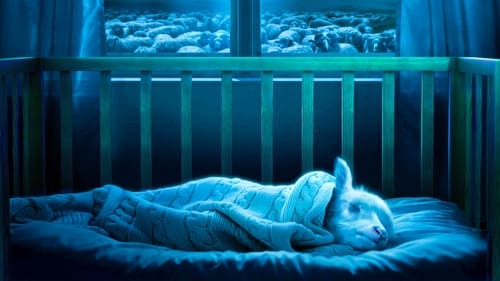
Executive Producer
Una pareja islandesa vive con su rebaño de ovejas en una hermosa pero remota granja. Cuando descubren un misterioso recién nacido en su tierra, deciden quedárselo y criarlo como propio. Este acontecimiento inesperado, y la perspectiva de una nueva familia, les trae mucha alegría antes de destruirlos en última instancia.

Producer
On her regular day at work, Paola starts to feel that she is missing out something exciting.

Director
Presents moving images of society’s outsiders, the impoverished and oppressed, whose lives are contrasted with the opulent surroundings of contemporary Vienna.

Executive Producer
A filthy Con-Man stumbles into an old Balkan village where he tries to win the people by calling himself a doctor.

Writer
A young boy plays an accordion in a shopping mall. Béla Tarr picks up the camera one more time to shoot his very last scene. It is his anger about how refugees are treated in Europe, and especially in Hungary, that drove him to make a statement.

Director
A young boy plays an accordion in a shopping mall. Béla Tarr picks up the camera one more time to shoot his very last scene. It is his anger about how refugees are treated in Europe, and especially in Hungary, that drove him to make a statement.

Producer
Two starving kids find a dead body in the ruins.

Consulting Producer
Miners in a Bosnian coal mine. The camera silently watches over the miners working tirelessly amidst endless noise and the flickering light of lanterns.

An abandoned tumbledown theater in the outback of Paraíba state is the initial setting of a film about cinema, which explores the testimonials of the novelist and playwright Ariano Suassuna and other filmmakers such as Ruy Guerra, Julio Bressane, Ken Loach, Andrzej Wajda, Karim Ainouz, José Padilha, Hector Babenco, Vilmos Zsigmond, Béla Tarr, Gus Van Sant and Jia Zhangke. They all respond to two basic questions: why do they make movies and why do they serve the seventh art. The filmmakers share their thoughts about time, narrative, rhythm, light, movement, the meaning of tragedy, the audience‘s desires and the boundaries with other forms of art.

Executive Producer
The experiment presents a cinematic poem to filmmaking and film itself. Directed by eleven filmmakers, all under the vision of Bela Tarr's 'film.factory', delving into what keeps us making films.

Himself
A documentary about the making of The Turin Horse, the last film directed by Hungarian master Béla Tarr.

Producer
A cowherd, sheep, and the wind, all have an equal presence in the village. Death and life are one and indivisible.

Producer
La auténtica película de amor narra la historia del hombre real y de la mujer real. ¿Qué es el hombre real en la vida? ¿Y la mujer real? Mediante el reciclaje de los héroes y las heroínas de celuloide de 500 películas (objetos de tantos sueños y deseos), esta "película collage" de György Palfi nos muestra a qué se parecen y también qué sucede cuando se encuentran. (FILMAFFINITY)

Producer
Conjunto de episodios en los que se denuncia la degradación actual de la sociedad y de las instituciones políticas del país.

Béla Tarr
A film within a film within a film within a fish.

Screenplay
Libremente inspirada en un episodio que marca el fin de la carrera del filósofo Friedrich Nietzsche. El 3 de enero de 1889, en la plaza Alberto de Turín, Nietzsche se lanzó llorando al cuello de un caballo agotado y maltratado por su cochero y, después, se desmayó. Desde entonces, dejó de escribir y se hundió en la locura y el mutismo. En una atmósfera preapocalíptica, se nos muestra la vida del cochero, su hija y del viejo caballo.

Director
Libremente inspirada en un episodio que marca el fin de la carrera del filósofo Friedrich Nietzsche. El 3 de enero de 1889, en la plaza Alberto de Turín, Nietzsche se lanzó llorando al cuello de un caballo agotado y maltratado por su cochero y, después, se desmayó. Desde entonces, dejó de escribir y se hundió en la locura y el mutismo. En una atmósfera preapocalíptica, se nos muestra la vida del cochero, su hija y del viejo caballo.

Himself
Hungarian filmmaker Béla Tarr and film critic Howard Feinstein discuss his innovative filmography, punctuated by clips from his films.

Producer
In the closed world of a Catholic monastery shortly after World War II the post-war insecurity exacerbates the walls. A new world order has arrived. The monastic life begins to break down as some of the monks start to morally decline.
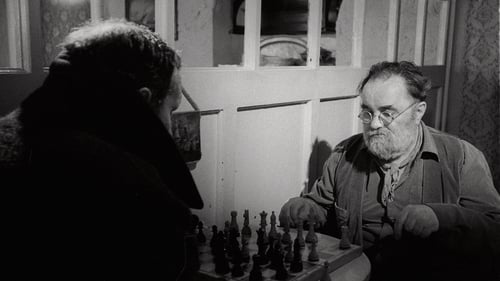
Associate Producer
Maloin es un vigilante de una estación de tren que, de forma casual, es testigo de un asesinato, y acaba haciéndose cargo de una maleta llena de dinero que trastocará para siempre su vida, acarreándole muchos problemas. Inspirada en la novela de Georges Simenon "El hombre de Londres".

Screenplay
Maloin es un vigilante de una estación de tren que, de forma casual, es testigo de un asesinato, y acaba haciéndose cargo de una maleta llena de dinero que trastocará para siempre su vida, acarreándole muchos problemas. Inspirada en la novela de Georges Simenon "El hombre de Londres".

Director
Maloin es un vigilante de una estación de tren que, de forma casual, es testigo de un asesinato, y acaba haciéndose cargo de una maleta llena de dinero que trastocará para siempre su vida, acarreándole muchos problemas. Inspirada en la novela de Georges Simenon "El hombre de Londres".

Producer
Johanna es una adaptación moderna de la vida de Juana de Arco. Johanna sufre un accidente y es resucitada por los médicos. Como resultado ella entrega su vida a mejorar la de otros pacientes, aunque acabará enfureciendo al personal del hospital. A veces aparece como ángel, otras como demonio, pero siempre representa el milagro de la naturaleza.
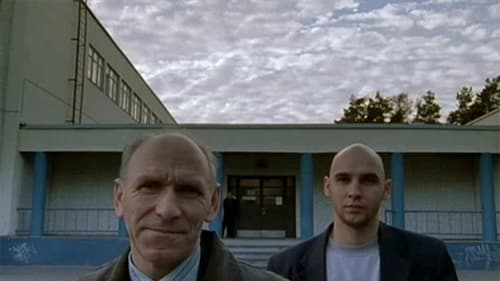
Director
Veinticinco cineastas, uno por cada estado de la Unión Europea, realizaron una película sobre sus respectivos países. Todas tenían el mismo presupuesto, debían estar ambientadas en el presente o en un futuro inmediato y durar cinco minutos. No había otras limitaciones, de modo que los autores tenían plena libertad para expresarse. Entre los directores figuran tanto nombres consagrados como voces nuevas dentro del panorama cinematográfico. Cada corto tiene su propia identidad, por lo que es posible establecer comparaciones fascinantes; pero, además, juntos ofrecen una imagen global de la Comunidad Europea a través de la fusión de esas distintas visiones conceptuales y creativas.
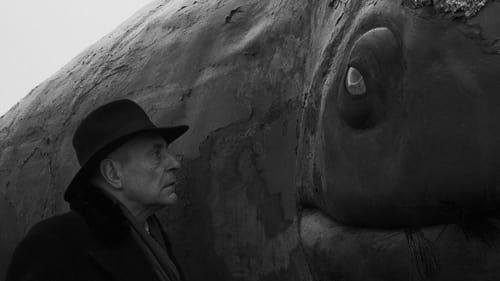
Associate Producer
Un circo llega a un pequeño pueblo en el que todos sus habitantes se conocen. La llegada de este circo, que promete el espectáculo de ver a un Príncipe y una ballena gigante despierta recelos en los habitantes, que comienzan a manifestarse contra los signos de violencia callejera que encuentran y que atribuyen al circo. El protagonista asistirá atónito y perplejo a todos estos acontecimientos que se desencadenan de forma precipitada.

Co-Writer
Un circo llega a un pequeño pueblo en el que todos sus habitantes se conocen. La llegada de este circo, que promete el espectáculo de ver a un Príncipe y una ballena gigante despierta recelos en los habitantes, que comienzan a manifestarse contra los signos de violencia callejera que encuentran y que atribuyen al circo. El protagonista asistirá atónito y perplejo a todos estos acontecimientos que se desencadenan de forma precipitada.

Director
Un circo llega a un pequeño pueblo en el que todos sus habitantes se conocen. La llegada de este circo, que promete el espectáculo de ver a un Príncipe y una ballena gigante despierta recelos en los habitantes, que comienzan a manifestarse contra los signos de violencia callejera que encuentran y que atribuyen al circo. El protagonista asistirá atónito y perplejo a todos estos acontecimientos que se desencadenan de forma precipitada.

Writer
György Fehèr’s aim was to “make a film which is similar to the last salvaged print of a long lost film”. The passions he investigates are centred on primeval fears and cravings and a sense of inescapable doom. Shot in powerful black and white with excellent central performances.

Director
Revisits of locations on the Great Hungarian Plain - the puszta - that were used in Tarr's Sátántangó and Werckmeister harmóniák. Recitations of short lyric poems by Hungary's national poet Sándor Petofi.
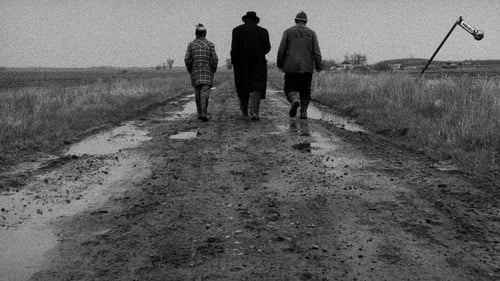
Director
La historia relata gradualmente los problemas de una granja colectiva durante unos pocos días de otoño en los años de la Hungría post-comunista, observada desde la perspectiva de distintos personajes. (FILMAFFINITY)

Screenplay
La historia relata gradualmente los problemas de una granja colectiva durante unos pocos días de otoño en los años de la Hungría post-comunista, observada desde la perspectiva de distintos personajes. (FILMAFFINITY)

Director
Collection of documentary shorts by various acclaimed directors

Writer
The last ship (Utolsó hajó) is leaving the quay. Sirens are sounding.

Director
The last ship (Utolsó hajó) is leaving the quay. Sirens are sounding.
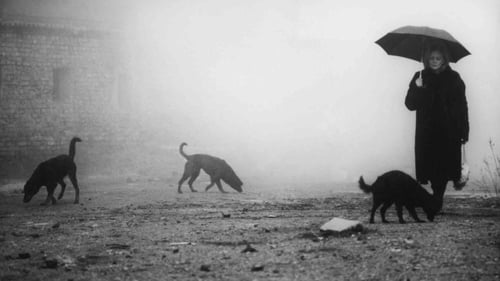
Writer
Karrer lleva una vida retirada en una población minera. Las tardes las pasa siempre en el bar Titanik, cuyo dueño le propone participar en una operación de contrabando, pero él prefiere cederle ese trabajo al marido de la cantante del bar.

Director
Karrer lleva una vida retirada en una población minera. Las tardes las pasa siempre en el bar Titanik, cuyo dueño le propone participar en una operación de contrabando, pero él prefiere cederle ese trabajo al marido de la cantante del bar.
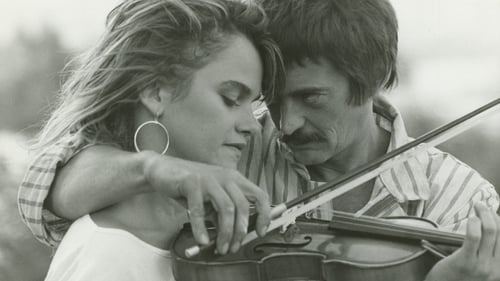
Zoltai is a Hungarian professor who returns home after a visit to the United States. Following a television interview, he commits suicide and leaves a note for his longtime friend Dr. Bardocz. The doctor and Zoltai's colleague Komindi join the police in investigating what drove the man to suicide.

Writer
Una mujer anciana es dueña del apartamento en que vive con su hijo. La mujer está enferma, y una joven enfermera, acompañada por su novio, se ha mudado con ella para administrarle las inyecciones. (FILMAFFINITY)

Director
Una mujer anciana es dueña del apartamento en que vive con su hijo. La mujer está enferma, y una joven enfermera, acompañada por su novio, se ha mudado con ella para administrarle las inyecciones. (FILMAFFINITY)

Screenplay
A Hungarian TV version of the play shot in just two takes.

Director
A Hungarian TV version of the play shot in just two takes.
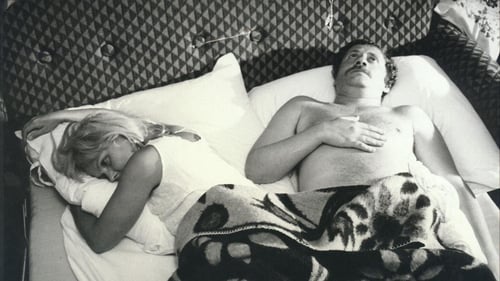
Writer
Using verite conventions, a young couple with a baby and a child are worn away by the monotony of their lives.

Director
Using verite conventions, a young couple with a baby and a child are worn away by the monotony of their lives.
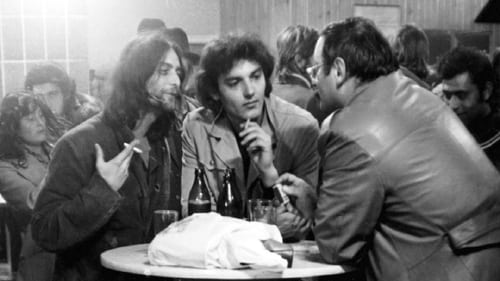
Writer
A talented but irresponsible violinist ruins his marriage with his drinking and antisocial behaviour.

Director
A talented but irresponsible violinist ruins his marriage with his drinking and antisocial behaviour.

Writer
Családi tüzfészek (aka Family Nest) is an intimate portrayal of a family slowly disintegrating under various pressures in late 1970s communist Hungary. The plot of the film is deceptively simple, with the occasional momentous event--including one that's relatively shocking, but plot in a conventional sense is not the focus here.

Director
Családi tüzfészek (aka Family Nest) is an intimate portrayal of a family slowly disintegrating under various pressures in late 1970s communist Hungary. The plot of the film is deceptively simple, with the occasional momentous event--including one that's relatively shocking, but plot in a conventional sense is not the focus here.

Director
A student film by Béla Tarr, from 1979. Presumed lost until very recently.

Writer
Cuando la dependienta de un hostal le dice al veterano de guerra Tibi que acaba de ser expulsado del alojamiento por robar un motor, comienza a haber una larga discusión en la que el viejo intenta defender su derecho a tener un albergue y los demás huéspedes intervienen, a menudo siendo agredidos. (FILMAFFINITY)

Director
Cuando la dependienta de un hostal le dice al veterano de guerra Tibi que acaba de ser expulsado del alojamiento por robar un motor, comienza a haber una larga discusión en la que el viejo intenta defender su derecho a tener un albergue y los demás huéspedes intervienen, a menudo siendo agredidos. (FILMAFFINITY)



















